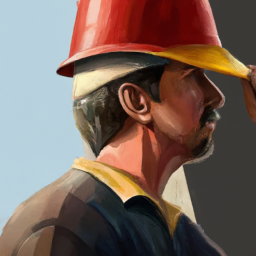Last Updated on April 30, 2023
Workers’ compensation (WC) is a system that provides benefits to employees who are injured or become ill on the job. WC systems vary from state to state, but they all have the same goal: to provide financial assistance to workers who are injured or become ill on the job. However, WC systems can be expensive for both employers and employees. In recent years, a number of states have taken steps to reform their WC systems in an effort to reduce costs and improve efficiency. These reforms include changes to the way claims are handled, the way benefits are calculated, and the way disputes are resolved.
Key Points:
- States are taking steps to reform their workers’ compensation systems in an effort to reduce costs and improve efficiency.
- These reforms include changes to the way claims are handled, the way benefits are calculated, and the way disputes are resolved.
- The reforms are designed to make the workers’ compensation system more affordable for both employers and employees, and to provide better benefits to workers who are injured or become ill on the job.
Workers’ Comp Reform: What States Are Doing to Reduce Costs and Improve Efficiency
Workers’ compensation (WC) is a system that provides benefits to employees who are injured or become ill on the job. WC benefits can include medical expenses, lost wages, and death benefits.
WC systems vary from state to state, but they all have the same goal: to provide financial assistance to workers who are injured or become ill on the job. However, WC systems can be expensive for both employers and employees.
In recent years, a number of states have taken steps to reform their WC systems in an effort to reduce costs and improve efficiency. These reforms include changes to the way claims are handled, the way benefits are calculated, and the way disputes are resolved.
Changes to the way claims are handled
One of the most common reforms that states are making to their WC systems is to change the way claims are handled. In the past, it could take months or even years for a WC claim to be processed. This was often frustrating for workers who were injured or became ill on the job and needed financial assistance.
To address this issue, many states are now implementing reforms that streamline the claims process. These reforms may include things like:
- Requiring employers to report injuries to their workers’ comp insurance carriers within a certain time frame
- Requiring workers to file their claims with their employer’s workers’ comp insurance carrier, rather than with the state
- Creating online portals where workers can file their claims and track the status of their claims. These portals can make it easier for workers to file their claims and to get the information they need about the status of their claims
Changes to the way benefits are calculated
Another common reform that states are making to their WC systems is to change the way benefits are calculated. In the past, the amount of benefits that a worker received was often based on their pre-injury earnings. This meant that workers who were injured or became ill on the job and were unable to return to their previous job could receive significantly less in benefits.
To address this issue, many states are now implementing reforms that tie the amount of benefits to the severity of the injury or illness, rather than to the worker’s pre-injury earnings. These reforms may include things like:
- Establishing a set schedule of benefits for certain types of injuries or illnesses
- Providing additional benefits for workers who are unable to return to their previous job
Changes to the way disputes are resolved
In the past, if a worker and their employer disagreed about a WC claim, the dispute would often go to court. This could be a costly and time-consuming process for both parties.
To address this issue, many states are now implementing reforms that allow workers and employers to resolve disputes through alternative dispute resolution (ADR) methods. ADR methods include things like mediation and arbitration.
ADR methods can be a more cost-effective and time-efficient way to resolve WC disputes. They can also help to reduce the number of WC cases that go to court.
The use of ADR in workers’ compensation is becoming increasingly common. In some states, ADR is mandatory for certain types of workers’ compensation disputes. In other states, ADR is voluntary.
If you are involved in a workers’ compensation dispute, you should discuss ADR with your attorney. ADR may be a good option for you if you want to resolve your dispute quickly and cost-effectively.
Here are some of the benefits of using ADR in workers’ compensation:
- ADR can be a more cost-effective way to resolve disputes.
- ADR can be a more time-efficient way to resolve disputes.
- ADR can help to preserve relationships between workers and employers.
- ADR can help to ensure that disputes are resolved fairly.
If you are considering using ADR in workers’ compensation, you should talk to an attorney who specializes in this area of law. An attorney can help you to understand the ADR process and to make sure that you are making the best decision for your case.
Conclusion
Workers’ comp systems are complex and ever-changing. The laws and regulations governing workers’ comp vary from state to state, and the cost of workers’ comp is constantly changing. As a result, it is important for employers and employees to stay up-to-date on the latest developments in workers’ comp.
The reforms that states are implementing are designed to reduce costs and improve efficiency. These reforms may include changes to the way claims are handled, the way benefits are calculated, and the way disputes are resolved.
If you have any questions about workers’ comp, please consult with an attorney who specializes in this area of law.

